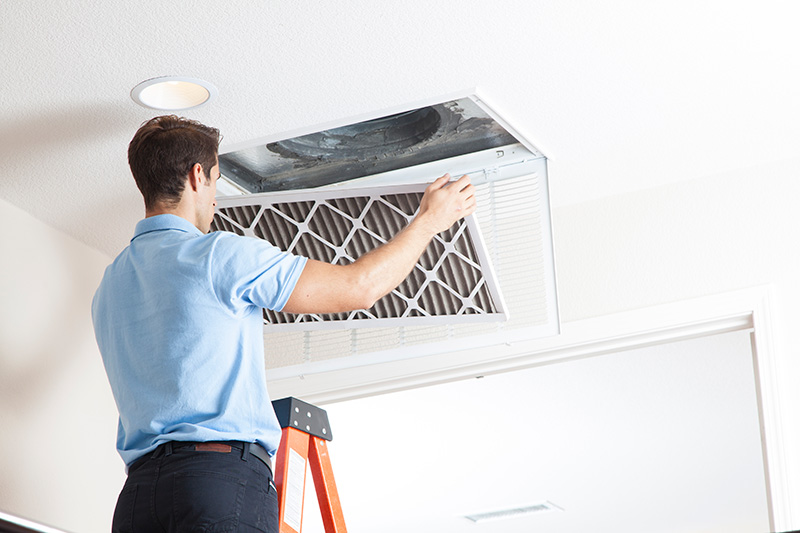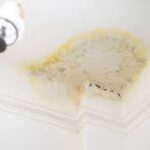Indoor air quality has a significant impact on comfort, health, and overall well-being. The air circulating through a home carries particles such as dust, pollen, pet dander, and pollutants that can accumulate if not properly filtered. Over time, these contaminants accumulate in the HVAC system, reducing airflow and compromising the air’s cleanliness. Regular filter changes are one of the simplest yet most effective ways to maintain a healthy indoor environment. By keeping filters clean and functional, homeowners ensure that their systems operate efficiently while reducing allergens and pollutants that affect both comfort and health.
Clean Filters, Cleaner Air
HVAC filters serve as the first line of defense against airborne contaminants. As air passes through the system, filters trap particles that would otherwise recirculate throughout the home. When filters become clogged, airflow decreases, forcing the system to work harder and allowing unfiltered air to bypass the filter. This leads to a buildup of pollutants that can trigger allergies, asthma, and other respiratory issues. Clean filters, on the other hand, capture and remove fine particles more effectively, keeping indoor air fresh and breathable. They help prevent the spread of dust and bacteria, which improves comfort and reduces the need for frequent cleaning. A simple habit, such as replacing filters on schedule, transforms the home into a healthier space, promoting consistent air circulation and reducing exposure to invisible pollutants that often go unnoticed in daily life.
The Connection Between Filter Maintenance and Health
The health benefits of clean HVAC filters go far beyond dust control. Airborne irritants, such as pollen, pet hair, mold spores, and chemical residues, accumulate quickly in closed environments, especially during months when windows remain shut. These contaminants contribute to poor air quality, which affects the respiratory system, sleep patterns, and cognitive focus. For households with children, elderly residents, or those with allergies, regular filter maintenance becomes essential. Clean filters ensure that the air remains free from excess allergens and pollutants, creating a safer environment for breathing. Homeowners who schedule timely replacements often notice fewer sinus problems and reduced allergy symptoms. Consistent filter care also prevents mold growth within ducts and vents, reducing long-term health risks. The professional maintenance provided by Southland Heating and Air helps ensure that filters and ventilation systems remain in optimal condition, delivering cleaner and healthier air year-round. With improved air quality, the entire household benefits from better overall wellness.
Protecting HVAC System Performance
Beyond health, filter maintenance has a direct impact on the performance and lifespan of an HVAC system. When filters become clogged, the unit must work harder to push air through, resulting in strain on the fans and motors. This extra effort increases energy consumption and accelerates wear and tear on the equipment. Dirty filters also trap moisture, which can lead to mold growth or corrosion inside the system. Regularly replacing filters ensures consistent and balanced airflow, enabling the HVAC system to maintain desired temperatures without excessive energy consumption. Over time, this reduces utility bills and prevents costly repairs or premature system failure. Homeowners who stay consistent with filter changes often find that their systems run more quietly and evenly, without frequent cycling or uneven airflow. Proper maintenance also preserves warranty coverage, since manufacturers typically require proof of upkeep. A well-functioning HVAC not only supports better air quality but also ensures long-term savings and reliability in every season.
Energy Efficiency and Environmental Impact
A clean HVAC filter plays a significant role in reducing household energy consumption. When air can flow freely, the system doesn’t have to work as hard to maintain comfort levels. This results in lower electricity consumption and a smaller carbon footprint. In contrast, a clogged filter can cause the system to consume up to 15% more energy. Over time, that additional usage adds unnecessary costs and strain on the environment. By replacing filters every one to three months, depending on conditions, homeowners can maintain energy efficiency without sacrificing comfort. This small step aligns with sustainable living practices, helping reduce both emissions and waste. Efficient airflow also supports more consistent temperature control, preventing the frequent adjustments that cause spikes in energy use. As awareness of environmental responsibility grows, regular filter maintenance becomes not only a personal benefit but also a collective effort to reduce energy demand and promote cleaner air for the community.
Eliminating Odors and Improving Comfort
Poor air quality isn’t always visible—it can often be detected through lingering odors. Clogged HVAC filters can trap moisture and bacteria that produce musty odors or amplify unpleasant smells from cooking, smoking, or pets. Replacing filters regularly helps eliminate these trapped particles, resulting in fresher indoor air. This improvement goes beyond health benefits—it enhances daily comfort and livability. Clean air contributes to a more inviting home environment where guests and family members feel at ease. Filters also play a role in maintaining humidity balance, preventing the damp conditions that encourage odor-causing bacteria. For those who spend much of their time indoors, especially during extreme weather, this improved freshness makes a noticeable difference. The absence of stale air not only improves mood but also supports restful sleep and relaxation. Maintaining filters is an effortless way to enhance indoor atmosphere, proving that small actions can make a meaningful difference in overall comfort.
The Importance of Consistency and Awareness
Regularity is key when it comes to filter changes. While homeowners may understand the benefits, it’s easy to forget replacement schedules until air quality declines or system performance falters. Setting reminders or coordinating filter changes with seasonal maintenance keeps the process consistent. Factors such as pets, smoking, or high outdoor pollen levels may require more frequent replacements. Being proactive ensures that the home’s air remains clean even during periods of heavy system use. Technicians can also recommend the correct filter type based on a household’s specific needs, ensuring a proper balance between airflow and filtration. Taking a few moments every few months to check and replace filters becomes a habit that protects both comfort and health. By staying attentive, homeowners create a cleaner, more efficient living environment that supports daily life in every aspect.
Read More: https://acubi.us/how-precision-performance-film-protects-your-vehicles-paint-and-finish/
Breathing Easier Through Simple Maintenance
Improving indoor air quality doesn’t always require major upgrades or costly equipment—sometimes, it begins with something as simple as changing an HVAC filter. Clean filters keep air fresh, reduce health risks, and allow systems to operate efficiently. They enhance comfort, lower energy use, and extend the lifespan of the entire system. Regular maintenance ensures that every breath taken indoors is cleaner, healthier, and more comfortable. It’s a small but powerful routine that benefits the home, the environment, and everyone inside. By committing to consistent filter changes, homeowners safeguard not only their HVAC investment but also their quality of life, one clean breath at a time.



